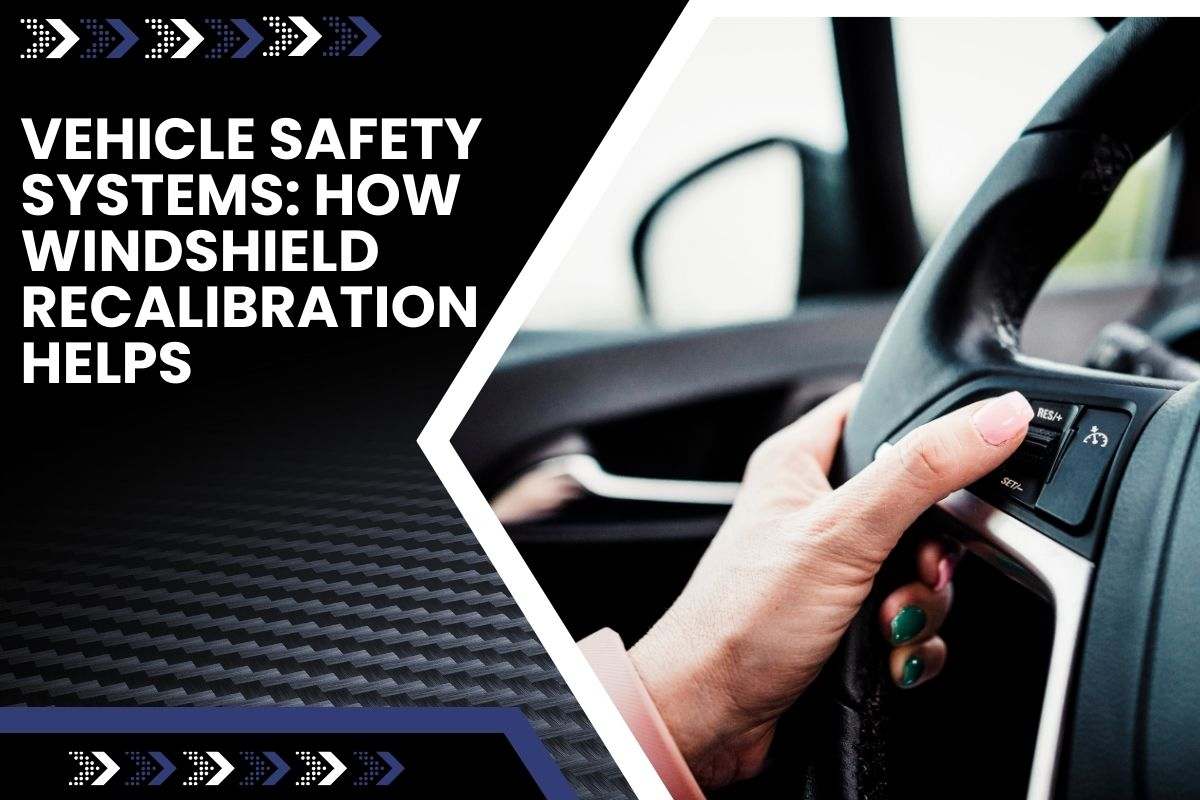Modern vehicle safety systems are more advanced than ever, with features like lane departure
warnings, adaptive cruise control, and collision alerts. These systems rely heavily on
accurate sensor alignment, making windshield recalibration essential for safe driving. In
this post, we’ll explain how windshield recalibration impacts vehicle safety systems,
why it’s necessary for ADAS accuracy, and how it supports your safety on the road.
Keeping these systems accurate helps prevent accidents and enhances your vehicle’s
overall safety performance.
How Windshield Recalibration Supports Vehicle Safety Systems
Windshield recalibration plays a critical role in ensuring that your vehicle safety systems
function accurately and respond effectively to real-time driving conditions.
Importance of Sensor and Camera Alignment
Windshield-mounted ADAS sensors and cameras support key safety features. These components
must be carefully aligned during recalibration to work correctly:
- Lane-Keeping Assistance: This system keeps your vehicle centered in its
lane by detecting road markers. Misaligned sensors can make it difficult for this system
to detect lane boundaries accurately, leading to potential drift and reducing driver
control.
- Forward Collision Alerts: Sensors on the windshield detect objects and
vehicles in front of you, giving time to react to potential collisions. If these sensors
are off by even a small margin, the ADAS may fail to deliver timely warnings,
compromising driver safety.
- Automatic Braking: Some ADAS systems include emergency braking
features. Accurate sensor calibration ensures that braking systems are activated only
when there’s a real threat, preventing false activations or missed hazards.
How Recalibration Improves ADAS Response Times
Recalibration aligns ADAS sensors to detect accurate distances and obstacles, reducing the
likelihood of errors:
- Reduces False Alarms: Properly calibrated sensors reduce unnecessary
warnings, so ADAS only responds to true hazards, enhancing focus on legitimate threats.
- Optimizes Safety Performance: When ADAS sensors and cameras work
accurately, features like automatic braking, adaptive cruise control, and lane departure
warning operate seamlessly, creating a safer and more controlled driving experience.
When to Seek Windshield Recalibration
Understanding the situations that require recalibration will help you maintain ADAS
reliability:
- After Windshield Replacement: Windshield replacement can shift the
positions of sensors and cameras. Recalibration restores alignment, ensuring that ADAS
features remain dependable.
- Post-Collision: Even minor accidents can cause sensor misalignment,
affecting system reliability. Post-collision recalibration ensures all components are
accurately restored to factory settings.
- Routine Maintenance: Some manufacturers recommend periodic
recalibration, even without damage, to maintain system accuracy and preemptively address
minor misalignments.
Keep Your Vehicle Safety Systems Accurate with Recalibration
Windshield recalibration is key to keeping your vehicle safety systems fully functional and
accurate. Proper sensor alignment ensures that ADAS features respond reliably to potential
hazards, enhancing your overall driving safety. If your windshield has been replaced or you
suspect misalignment, contact us
for expert recalibration services to support your safety on the road.
